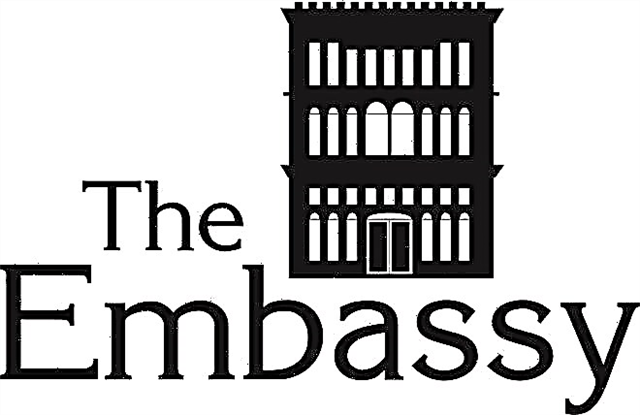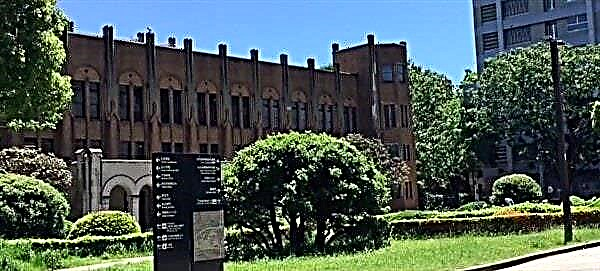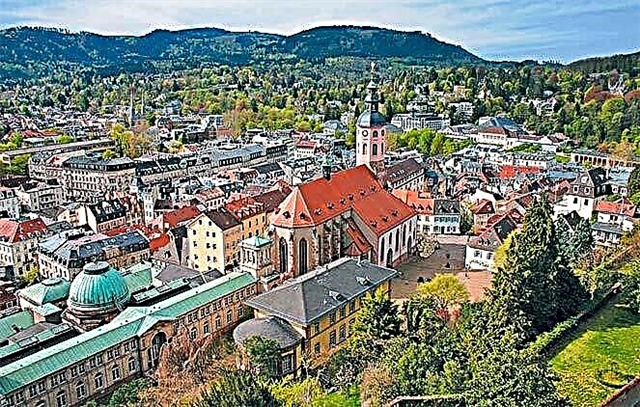Estonia today is one of the most successful and prosperous republics in the former Soviet space. And although in Europe its indicators are far from those of Western European powers, the country's authorities are making a lot of efforts to maintain the economic and financial well-being of citizens. In this regard, work in Tallinn is of interest to many residents of the CIS. In addition, this migration path makes it possible to obtain an Estonian residence permit and live in the territory of the European Union.

What professions are relevant in the capital of Estonia
After secession from the USSR, Estonia embarked on a course of integration into the European community. Today its economy is one of the strongest in Central Europe and the Baltics.
The unemployment rate is kept at 7.5%, which is not too different from its European neighbors. But the labor market in the country is experiencing a shortage of personnel in many sectors.
The list of these directions is precisely what determines who the Russians work in Tallinn. These include:
- IT sphere;
- car business
- services sector.
A large number of manufacturing companies are concentrated in Tallinn. There is a shortage of highly qualified personnel with higher education and work experience in the city in the city.
The capital of Estonia is among the top 10 cities in the world in terms of the development of digital and information technologies. Work for Ukrainians, Belarusians, Russians and residents of other CIS countries in this area will be the most advantageous option. Men can also fulfill themselves in the fields of construction and engineering. Employees with a technical bias can easily find work in one of the production areas.

Popular jobs include:
- sellers;
- equipment operators;
- service workers;
- shipbuilding specialists;
- sales representatives;
- large truck drivers and truckers;
- movers, handymen;
- programmers;
- technicians and technologists;
- school teachers and university professors;
- metallurgical industry specialists.
Work in Tallinn for women is not presented in such a wide variety: most often they are offered to work as secretaries, nurses, seamstresses, masseuses, nannies.
Requirements for applicants
 Representatives of the CIS space will be able to take advantage of employment benefits only if they meet one of the following conditions:
Representatives of the CIS space will be able to take advantage of employment benefits only if they meet one of the following conditions:
- are holders of the "Blue Card" (European permanent residence);
- graduated from an Estonian higher education institution and have a corresponding diploma in their hands;
- are highly qualified specialists.
Finding a job is easiest for those who have a higher education and a profession that is in demand in the capital's labor market.
Another prerequisite for successful employment is knowledge of Estonian and English. Despite the fact that many Estonians speak and understand Russian, preference is still given to those who know the state language of the country and English.
Work in Tallinn for Russian speakers who do not speak other languages is possible in Russian companies or in low-paid vacancies - loaders, cleaners, equipment operators in production.
The working conditions will depend on the position and the area of employment. Seasonal workers most often work on a rotational basis or come for a season to perform a specific job. They are usually provided with housing and food.
The housing issue will not have to be dealt with by those whose experience and qualifications are very important for the company. Employers often provide apartments in demand for specialists.
Most employees work 8 hours a day and 40 hours a week. Weekends are Saturday and Sunday. The reduced regime applies to minors and educational workers.
Overtime is usually compensated for by additional free hours, unless there has been a written agreement to pay compensation.
Take a sociological survey!
[yop_poll id = ”14 ″]
Job search methods
Any method will work to find a suitable position. But it should be remembered that Estonia is a digital state, and therefore the greatest efforts should be directed to electronic portals:
- Work in Estonia is an official resource that also contains information about the social life and culture of the state.
- CV-Online - here you can find offers from direct employers and government companies. The site also contains offers from companies located in Scandinavia and the Baltics.
- CV-Keskus is one of the most visited resources where private companies, including those from other EU countries, are looking for employees.
What you need to get a job in Tallinn
 To find a job in Tallinn, you have to go through several stages. The process begins with the employer announcing the opening of a vacancy and holding a competition among the local population. If the only one who is suitable for the position is a foreign citizen, the company applies to the Unemployment Insurance Fund to obtain permission to accept it.
To find a job in Tallinn, you have to go through several stages. The process begins with the employer announcing the opening of a vacancy and holding a competition among the local population. If the only one who is suitable for the position is a foreign citizen, the company applies to the Unemployment Insurance Fund to obtain permission to accept it.
It will be possible to get a positive answer only if the declared salary of the future employee is at least the national average multiplied by a coefficient of 1.24, and the company has been on the market for at least a year.
The employer sends the received permission to the consulate of the country, where the future employee will request a visa permission.
To obtain a national visa D, you must prepare the following package of documents:
- Foreign passport with a validity period of three months from the date of expiry of the visa.
- 2 photos.
- Visa application.
- Insurance in the amount of 30 thousand euros.
- Written justification for the purpose of entering the country.
- Certificate of the availability of funds in the account (the employer can act as a guarantor).
- Employment contract (sent to the consulate by the employer).
- Work permit.
- Receipt for payment of the duty in the amount of 90 to 230 euros (depending on the period of validity of the visa).
For seasonal work, it is sufficient to obtain a category C visa. There is no need to request permission. Registration of a residence permit after entry is also not necessary.
Journalists, people of creative professions, athletes, scientists, highly qualified specialists can also work without permission.
The visa is issued for a period from 3 months to a year. Immediately after entry, a migrant worker can apply for a residence permit. It should be remembered that a foreigner will be able to work only with the employer who requested a work permit for him.
The issue of diploma recognition deserves special attention. The fact is that the difference in academic programs and the number of teaching hours can be a reason for going through the nostrification procedure. Whether the candidate's profession is included in this list, you can find out on the official portal eestie.ee.
Recruitment agencies
 Good jobs in Tallinn can also be found through intermediaries. But their choice must be approached very carefully so as not to trust scammers. First, you should read the reviews about the company to make sure of its competence. Most often, such firms offer seasonal or unskilled vacancies, physical work.
Good jobs in Tallinn can also be found through intermediaries. But their choice must be approached very carefully so as not to trust scammers. First, you should read the reviews about the company to make sure of its competence. Most often, such firms offer seasonal or unskilled vacancies, physical work.
Where can I go:
- Flagma - there are many vacancies here at manufacturing plants, construction sites and car services.
- Finesta is one of the largest agencies with representative offices in all the Baltic countries.
- Arista is suitable for executives and middle managers. The site is only available in Estonian and English.
Alternatively, you can use the offers presented at the Job Fair.You can find the schedule of such events on this website.
Wage level
 Salaries in Estonia are not among the highest in the EU. In 2021, the average earnings in the country are about 900 euros, in Tallinn - 1,000-1,200 euros. Working professions can earn no more than 500 euros per month.
Salaries in Estonia are not among the highest in the EU. In 2021, the average earnings in the country are about 900 euros, in Tallinn - 1,000-1,200 euros. Working professions can earn no more than 500 euros per month.
Highly qualified specialists may well claim an income of 2,000-2,500 euros per month. Financiers, programmers, and insurance business workers receive the most in Tallinn.
Service workers and builders are most often paid hourly wages ranging from 2.5 to 5 euros per hour. Average earnings by profession are presented in the table:
| Position | Payment per month in EUR |
|---|---|
| Handyman | 1000 |
| Builder | 1 400-1 800 |
| Welder | 1 500-2 000 |
| Working as a driver | 1 500-2 000 |
| Collector of furniture | 850 |
| Programmer | 2 000-2 500 |
| Nanny | 850 |
| Accountant | 1200 |
| Gardener | 1400 |
| Marine engineer | from 2,500 |
| Sorters for production | 600-1 200 |
How much is life in Tallinn
Whether labor emigration will be successful depends not so much on the volume of wages as on the ability to cover all current expenses with this money. To date, the budget of the average citizen of the country is distributed as follows:
| Expenditure item | Amount in Euro |
|---|---|
| Rent one bedroom apartment | 200-300 per month |
| Buying a one-bedroom apartment in a residential area | from 100,000 |
| Utilities | 70-80 per month |
| Food basket | 20-25 for a week |
| 1 trip by public transport | 1.1 |
| Taxi within the city | from 2 per km |
| Lunch at an inexpensive cafe for two people | 40 |
| Pass for 1 month | 23 |
| Internet | 20 per month |
| Gym membership for 1 person | 53 |
| 1 cinema ticket | 8 |
| Private kindergarten | 420 per month |
Outcomes
The advantages of working in the Estonian capital include the absence of bureaucracy in employment (many procedures can be completed via the Internet), the ability to live in the EU, and the variety of available vacancies. But without knowing the Estonian language, the chances of finding a good job are reduced by 30-50%.
Local employers give priority to those who are fluent in Estonian and English and have a profession in demand. Without knowledge of the language, migrants from the CIS have access to seasonal work and unskilled labor.











